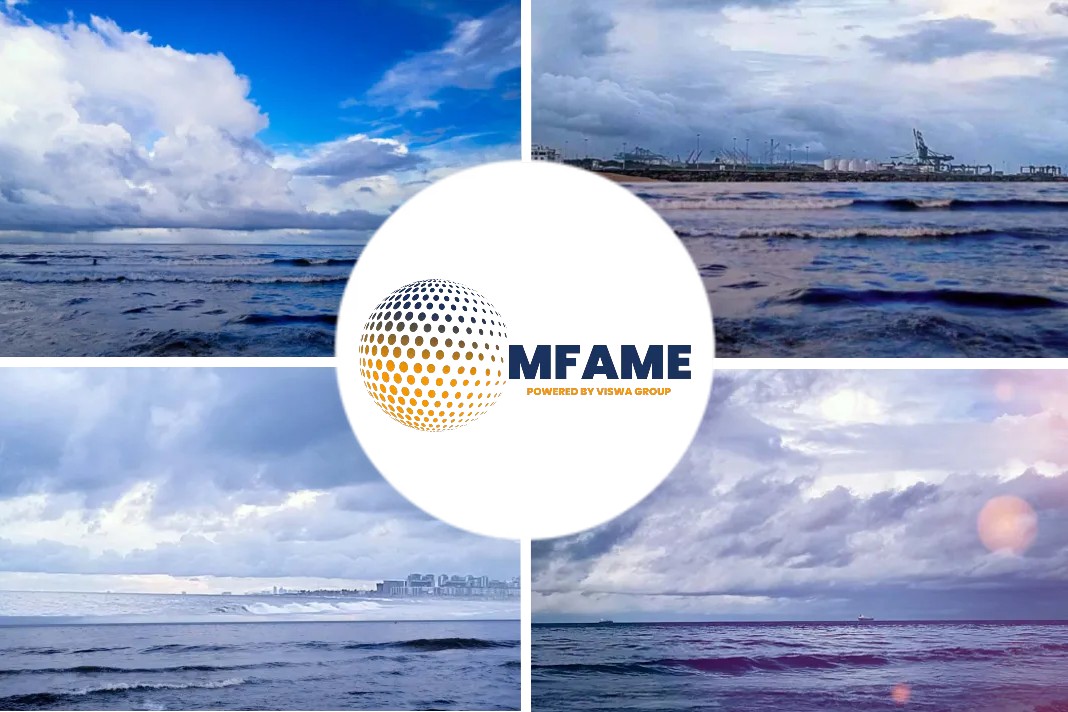
The alcoholic drinks market is mammoth. Worth over £1.6 trillion in 2023, the prizes are big, the competition ruthless. And while it’s projected the market will continue to grow in the coming years, alcohol consumption is decreasing in many places across the globe.The need for efficiency in alcohol logistics has never been greater, reports Maersk.
With that in mind, let’s look at five unique challenges of alcoholic beverage logistics and their solutions.
Age verification
Age verification hasn’t traditionally been too much of a problem for FMCG logistics teams. Retailers and licensed venues are responsible for selling alcohol to adults only.
However, with the rise in direct-to-consumer e-commerce and app-ordered deliveries, the challenge of alcohol age verification has taken a new form.
Currently in the UK, age verification is sought at the point of delivery. However, if the online market continues to grow, large retailers could find themselves having to consider more robust online age checking — such as that enforced for the online sale of knives and tobacco products — to supplement their offline verification systems.
For example, in 2022, Morrisons, Co-op, Tesco and Asda launched trials of digital age estimation tech from provider Yoti, while Bargain Booze, Tippl and Wine Rack tested a similar solution from Innovative Technology.
A strategically aligned logistics partner can help you navigate the regulations and integrate the technology platforms you need to maintain trading compliantly, using experience from the verticals that have already made these adaptations.
Temperature control
Age verification hasn’t traditionally been too much of a problem. Many alcoholic beverages, such as wine and beer, are sensitive to temperature changes which affect their quality and shelf life. This means careful temperature control is required during storage, handling and transportation.
Experienced logistics companies have measures in place that enable them to do this. For example, insulated packaging, such as thermal bags or thermal blankets, is considered vital for the transportation of alcoholic beverages. That’s because these passive controls protect the temperature of the cargo at a lower cost than active controls such as reefer containers.
That said, reefer equipment can still be used in certain instances. With shipments that require optimum control, for instance, reefers can be used alongside digital technology to maximise assurances: Maersk’s reefer solution, Captain Peter, provides real-time data on what’s going on inside our containers, covering everything from temperature and humidity to O2/CO2 levels.
Any anomalies are communicated quickly and issues are addressed, so cargo arrives in the best possible condition.
Fragility
When it comes to transportation, all alcohols are not equal. There’s a significant risk difference between moving bottles and flexitanks. And some beverages, such as sparkling wine, are more fragile and susceptible to loss of quality during handling and transportation. This can require the use of specialised packaging and handling techniques to ensure product integrity.
Finding a logistics partner with packaging and packing experience reduces the risk of damage. Finding one that can offer a simple returns process (when reversing a supply chain isn’t a simple process) makes sure your brand can offer customers a good experience even if they’re not satisfied with the product itself.
Regulations
The production, distribution and sale of alcoholic beverages are, for obvious reasons, subject to regulations. The complexity for FMCG companies, the administrative expense, is that these vary by country, state and local jurisdiction.
Compliance is complex and costly. It’s a constant source of stress for companies whose best qualities are creating exquisite concoctions. Using a partner service, like Maersk’s centralised customs solution, keeps your cargo moving smoothly across borders and keeps you abreast of any regulatory changes you need to know about to continue trading.
Seasonality
Alcohol is driven by customer demand, and that demand changes with the season (which can be planned for) and the weather (which is a bit harder). Supply chain speed and flexibility help take advantage of seasonal and meteorological fluctuations in demand. And visibility and control help you get speed and agility.
A 4PL logistics partner such as Maersk can help you digitise your data, digitalise processes and connect it all to create complete visibility of your end-to-end supply chain. Together with our multi-modal transport offering and warehousing and distribution services, alcohol companies are given a competitive edge in demand response.
Did you subscribe to our Newsletter?
It’s Free! Click here to Subscribe.
Source: Maersk
















Only by adhering to clear rules for beer production and logistics can your business achieve success. Here https://www.micetcraft.com/brewery-equipment/ you can find more information about brewery equipment. Modern brewery equipment provides precise control over temperature, timing, and other crucial brewing parameters. This precision ensures that the brewer can replicate recipes accurately and experiment with new ones effectively.